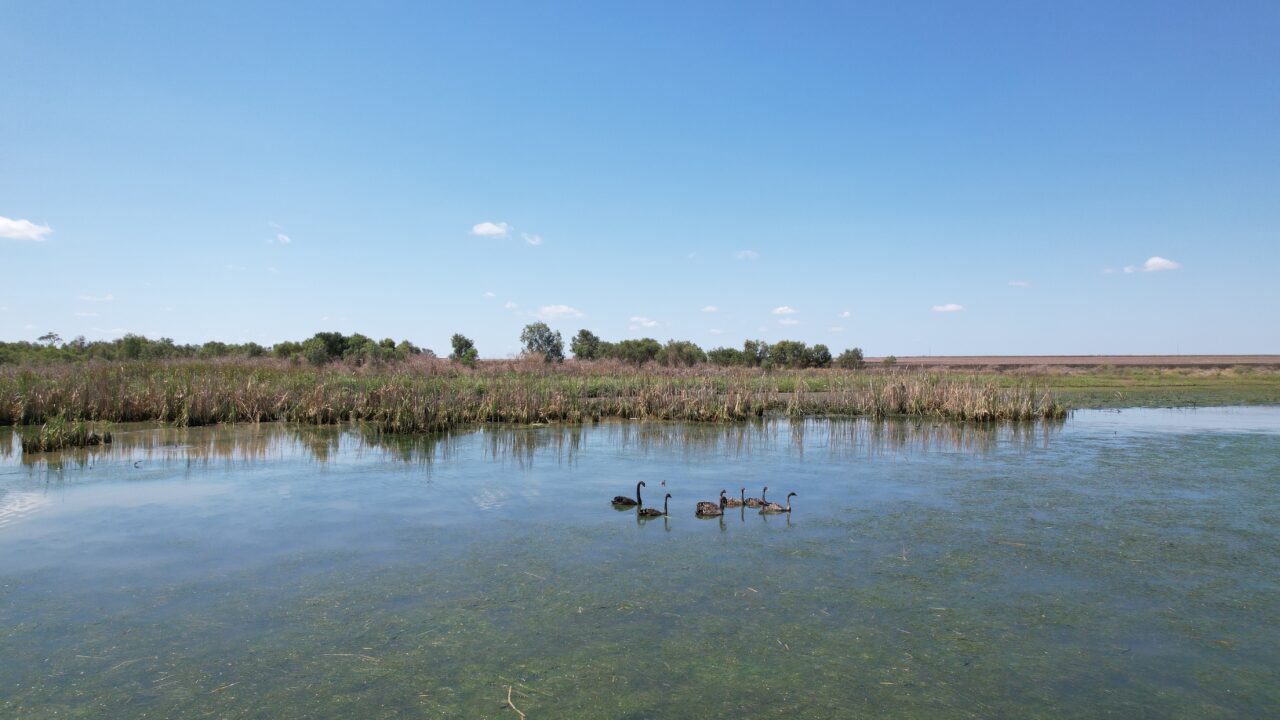
On Bradley Anderson’s cotton farm in Central Queensland, a dam initially built for irrigation has evolved into a thriving sanctuary for a diverse range of native, endangered and vulnerable bird species.
Constructed to support irrigation, the dam quickly became home to a variety of wildlife. Among its long-term residents are native Cygnus Atratus swans, commonly known as black swans. Bradley says these swans have inhabited the dam for nearly 20 years, with adult swans staying while their offspring migrate to establish their own habitats.
Black swans are known for their monogamous breeding habits, with both parents sharing the responsibilities of incubating and raising their young. While they were once thought to be sedentary, they are now recognized as highly nomadic, with no fixed migratory patterns.
The dam also provides crucial habitat for several endangered species including the critically endangered Capricorn Yellow Chat, Eastern Curlew, Australasian Bittern, as well as the vulnerable Sharp-Tailed Sandpiper and Terek Sandpiper.
"Originally, the dam was built for irrigation, but it has become a vital wildlife habitat because it never runs dry," Bradley said.
Although the dam remains essential for irrigation, Bradley is committed to maintaining water levels that support the wildlife. In addition to the dam, he manages a natural soak wetland, which was protected by his family in the 1980s to prevent it from drying out. This wetland forms part of the farm’s water infrastructure, where recycled irrigation water is returned to the wetland, supporting biodiversity.
Bradley also protects around 80 hectares of untouched land, providing a haven for kangaroos and other local fauna. He actively manages this area by controlling pests and weeds, preserving native trees, grasses and rock formations to ensure its longevity.
“These areas provide perfect habitat for microbats, birds of prey, owls, and blue-tongue lizards,” Bradley said.
Researchers visiting the farm have identified a wide array of bird species including reed warblers, egrets, bitterns, herons, dusky moorhens, purple swamp hens, brolgas and the Australian white ibis.
"We love coming out for a drive to see what’s happening on the dam, and if the swans have had any more babies," Bradley said.
